The future of healthcare at the Future Labs
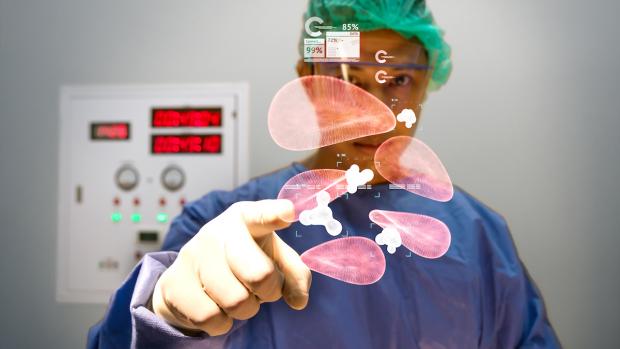
NYU Tandon’s Future Labs, the school’s network of business incubators and accelerators, has a wide variety of startups in its portfolio, focused on everything from clean energy solutions to cutting-edge educational initiatives to transportation innovations. With most people focused on staying as healthy as possible these days, here’s a look at how just a few Future Labs companies are making their marks on the world of healthcare and medicine.
Alexapath
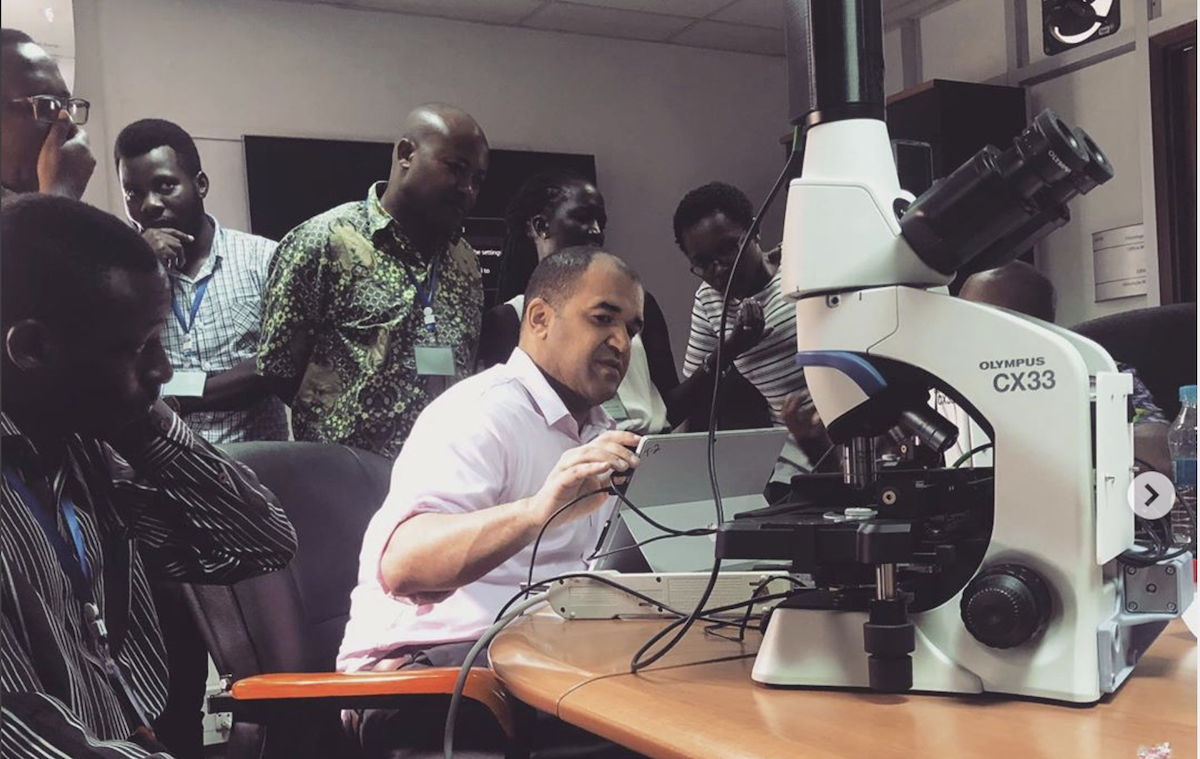
We talked to: Chief Technology Officer and Co-founder Shishir Malav
Company mission:
As the developer of the world’s first AI ready light microscope, Alexapath is harnessing the power of technology to transmit image-rich pathology data — quickly, accurately, and affordably — from the field to medical personnel working remotely. It’s a particular boon to patients in isolated or developing communities with a shortage of trained specialists and it’s making great strides towards more accessible and equitable healthcare.
Latest news:
Alexapath is currently partnering with Tumaini La Maisha, a nongovernmental organization based in Tanzania whose goal is to create a comprehensive network of collaborating children’s oncology centers across the country. Co-founder Lou Auguste recently traveled there to deliver several of the company’s AiDA 2 microscopes, which will allow pathologists to review patient slides for symptoms of Burkitt’s Lymphoma, common in children living in sub-Saharan Africa.
The company has also partnered with the Armed Forces Medical College of India and IIT Bombay to develop a TB AI diagnostic. The solution will be deployed at 10,000 TB clinics across India to meet the government's 2025 goal of tackling the world's largest number of TB cases
Why be part of the Future Labs?
Malav, who graduated in 2015 from NYU Tandon with a master’s degree in computer engineering, says, “Obviously, for me personally, it was wonderful that Alexapath launched here, because I was able to transition from student intern to co-founder. Beyond that, however, the resources here have been invaluable to us; for example, components of the microscopes that were taken to Tanzania were manufactured right here in the Future Labs ProtoShop.
Medivis
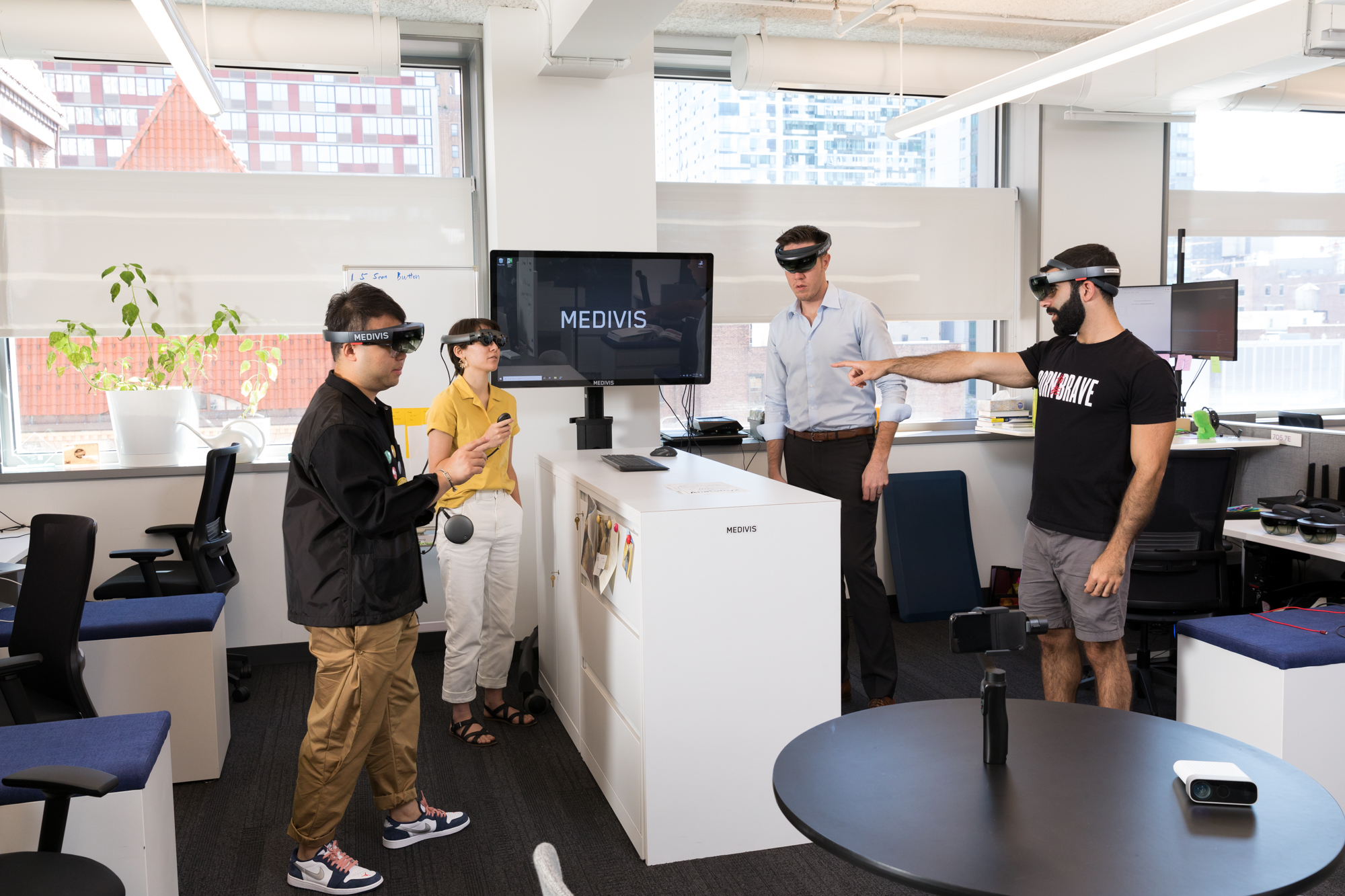
Photo credit: Carey Kirkella
We talked to: Co-founder and CEO Osamah Choudhry
Company mission:
Medivis is leveraging augmented reality and 3D holographic imaging to advance how surgeons train and operate.
Students using its AnatomyX platform are able to explore 3D human anatomy in ways never before possible, and a recent study showed them demonstrating a significant letter grade improvement and a 20% decrease in the failure rate.
Operating room personnel can deploy the company’s SurgicalAR platform, a visualization tool that guides surgical navigation, thereby decreasing complications, improving patient outcomes, and lowering surgical costs.
Latest news:
Medivis recently signed an agreement with the U.S. Department of Veterans Affairs, which runs the largest hospital system in the nation, as part of government efforts to deliver to veterans the first advanced, 5G-enabled, clinical care system. The public-private partnership, dubbed Project Convergence, also includes Verizon and Microsoft and will be led by VA’s National Center for Collaborative Health Care Innovation.
Why be part of the Future Labs?
Choudhry says, “I met my co-founder, Christopher Morley, here at NYU, so it’s great to still be a part of that ecosystem. I feel that we grew up here in a sense. Additionally, the ability to interact with the other start-ups at the Future Labs, is invaluable: we brainstorm, collaborate, and motivate each other.”
Mediktor
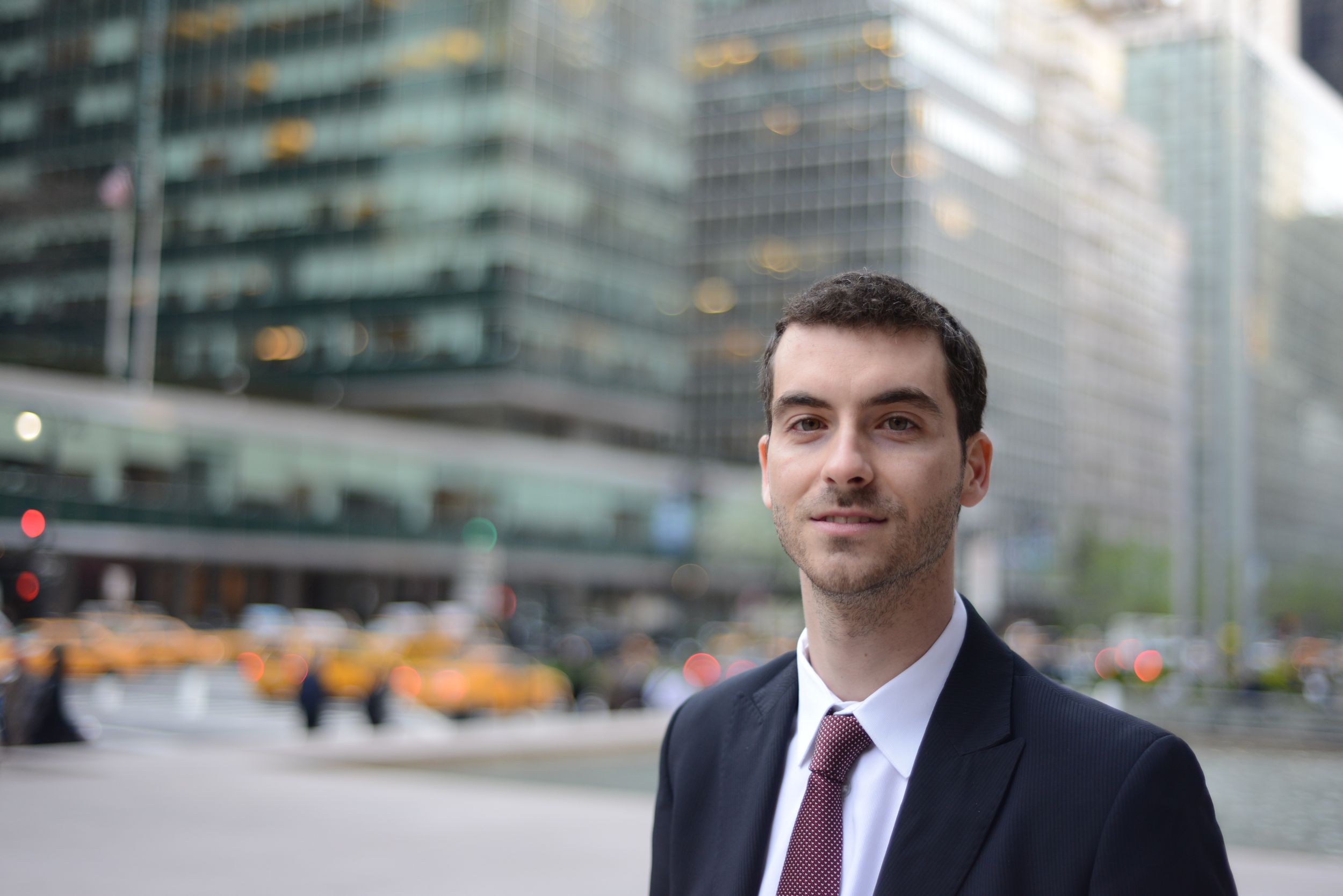
We talked to: Vicenc Ferrer, Managing director NYC office
Company mission:
Mediktor is a clinically validated AI-based medical assistant for triage, pre-diagnosis, and decision-making support. It enables healthcare organizations to direct patients to the appropriate venue of care on a safe, convenient and cost effective way.
Studies have shown that patients acting on their own, sometimes after casually Googling their symptoms, make unwise or expensive decisions about 70% of the time; Mediktor’s platform, which has joined the Epic App Orchard to offer healthcare organizations the ability to integrate self-triage with MyChart, substantially improves upon that figure, with a recent clinical study demonstrating a 91% accuracy rate.
Latest news:
Mediktor has just inked a deal with Yale New Haven Health (YNHHS), which plans to integrate the AI-based medical assistant into the digital front door of the five hospitals it manages.
Why be part of the Future Labs?
Ferrer explains, “Our company is headquartered in Spain, and while U.S. healthcare is a difficult ecosystem to penetrate, having a base of operations here in New York has helped immeasurably. We are excited to have forged a partnership with Yale and hope there may be one with NYU in the future.” He continues, “Being in the Future Labs has really provided the gold standard of resources for us. We’re able to share experiences and best practices with fellow companies, and, importantly, commiserate when business plans don’t go as smoothly as expected.”
Movement One Labs
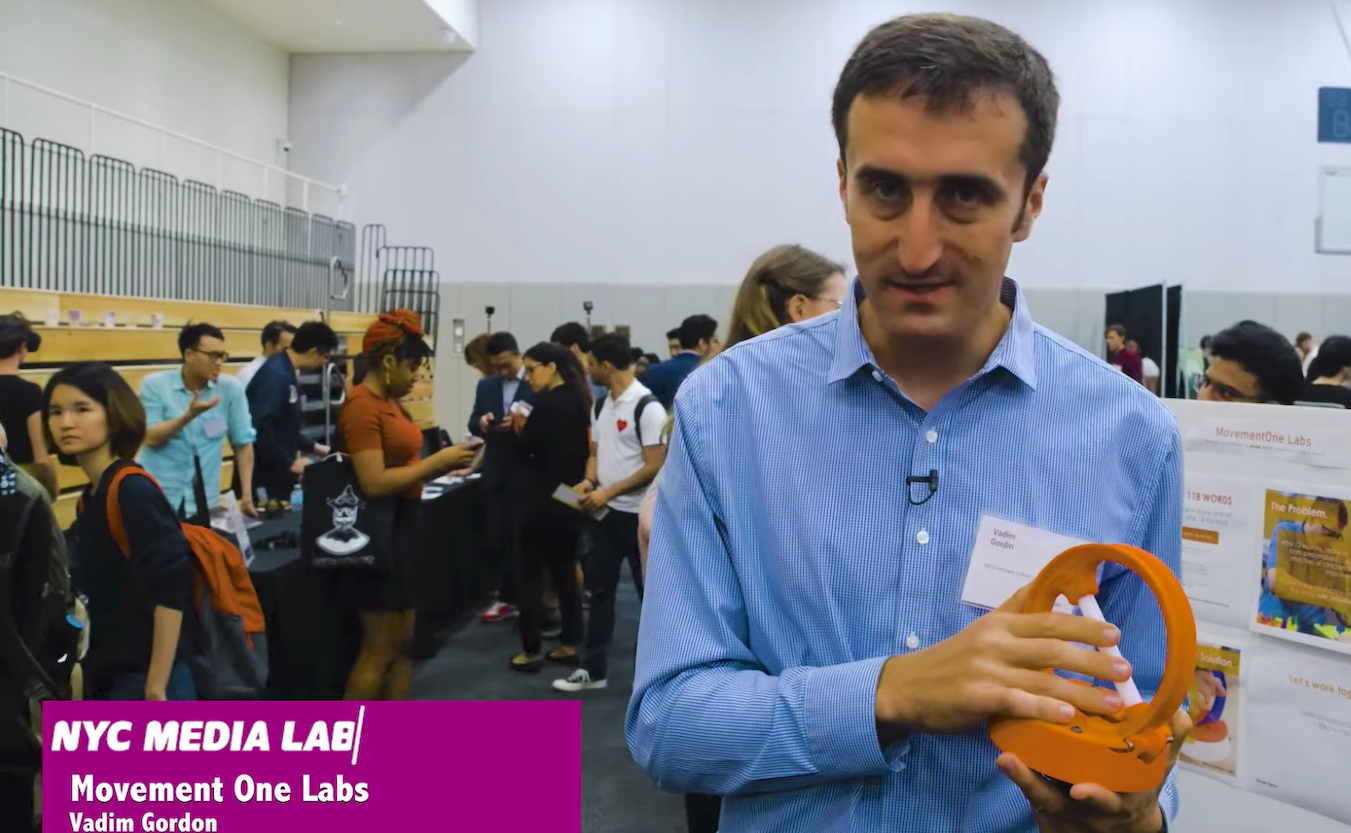
We talked to: Founder Vadim Gordin
Company mission:
Realizing that insurance coverage ends well before most stroke patients are fully rehabilitated, Gordin has set out to make the process affordable and enjoyable (an equally important consideration since those who have suffered strokes often feel isolated and depressed). Describing Movement One as “the Netflix for rehabilitation,” he has created a software platform that allows patients to choose a variety of engaging exercises (including those aimed at improving memory or muscle function), use them as much or as little as they like, and report their results to their clinicians.
Latest news:
Now in beta testing, Movement One is set to start clinical trials in collaboration with the Mount Sinai system this coming summer, and Gordin plans to expand the platform’s offerings, which currently include an arcade-style “duck hunt” game, even further.
Why be part of the Future Labs?
Gordin says, “Director Steve Kuyan and the rest of the team here are incredibly inspiring and are great at teaching all the ins and outs of New York City’s challenging start-up scene. And because of the wide variety of Future Labs companies, the potential for cross-pollination is massive.”
TruGenomix
We talked to: Founder and CIO Yusuf Henriques
Company mission:
TruGenomix, is a company founded by military veterans to improve screenings, reduce the suffering and potential suicide of those afflicted by PTSD. With a stellar team headed by retired Air Force and Public Health Service Officer Charles Cathlin as CEO, Dr. Tshaka Cunningham, former Scientific Program Manager at the V.A. Office of R&D as CSO, and Yusuf Henriques, a former Army Combat Medic as CIO, TruGenomix set out to commercialize a product that could, based on proven genetic biomarkers, predict risk and assist in the diagnosis of PTSD through a simple blood test.
Latest news:
TruGenomix is the realization of their vision and collaboration and is in the midst of a thousand-patient retrospective validation study on PTSD. This landmark work includes a uniquely high representation of diverse populations such as African Americans, Hispanics, and Women. Their distinctive and deliberate, diversity-focused approach reiterates the scientists’ assertion of the need for precision genomics that applies to all patient populations — regardless of race or gender.
A new and prominent member of the team is Chief Medical Officer, Dr. Anne Naclerio, a 30-year Army Veteran. Dr. Naclerio is highly regarded across the DoD as an expert in executive medicine, strategic medical leadership, and medical readiness policy. She is also well respected for her work on women in the services.
Why be part of the Future Labs?
“It’s gratifying to be in a university-run incubator system that values scientific discovery, diversity, and the use of innovative technology for the benefit of society — all ideals that we at TruGenomix share,” said Henriques.
The ProtoShop
Gordin has another title besides founder to his credit — Maker in Residence at the ProtoShop. Located at the Veterans Future Lab in Brooklyn’s Industry City, the ProtoShop houses an array of state-of-the art tools, including 3D printers, laser cutters, plasma cutters, milling machines, and much more. Open to the members of the general public, as well as to Future Lab participants, the facility allows aspiring entrepreneurs and inventors to turn their ideas into working prototypes. “There’s really nowhere else like it in the city,” Gordin says. “Some wonderful work is emerging from it, and I hope, as the word spreads, more people will make use of what is truly a unique resource right in their own backyard.”




